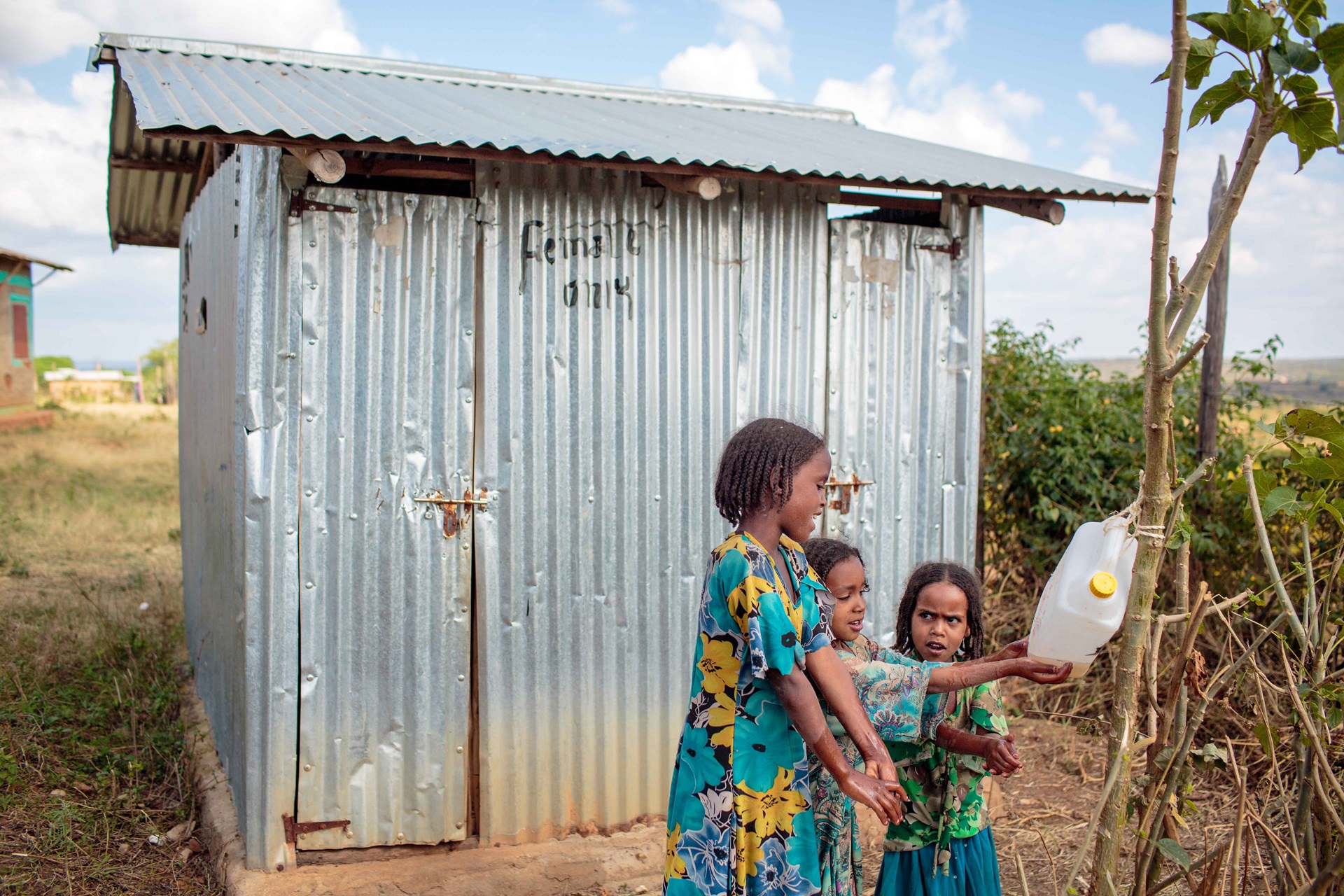Water, sanitation and hygiene (WASH)
Providing safe water,
sanitation and hygiene (WASH) is a key component of the global NTD
strategy. As well as supporting the achievement of Sustainable Development Goal
(SDG) 6 on clean water and sanitation, WASH contributes to the achievement of
SDG 3.3 to “end the epidemics of … neglected tropical diseases”, among others.
Many of the pathogens that cause NTDs thrive where water and sanitation are inadequate. For example, water contaminated with faeces and urine can contain worm eggs that lead to the transmission of schistosomiasis and soil-transmitted helminthiasis. Similarly, poorly constructed latrines facilitate the breeding of the Culex mosquito, which transmits filarial parasites (the cause of lymphatic filariasis) to humans. Access to clean water is also essential for wound care and routine self-care for diseases such as leprosy, lymphatic filariasis, mycetoma and rabies.
The road map recommends the inclusion of a WASH component in strategies directed against a wide range of diseases, including Chagas disease, dengue and chikungunya, dracunculiasis, echinococcosis, foodborne trematodiases, human African trypanosomiasis, leprosy, lymphatic filariasis, mycetoma, chromoblastomycosis and other deep mycoses, rabies, scabies and other ectoparasitoses, schistosomiasis, soil-transmitted helminthiases, taeniasis and cysticercosis, trachoma and yaws.

Children wash their hand at a latrine at Tutis Primary School in Oromia State of Ethiopia
In March 2021, WHO launched a Global Strategy on Water, Sanitation and Hygiene to Combat Neglected Tropical Diseases – 2021-2030 to complement the road map for the current decade. The strategy also aligns with targets for SDG6.1 and 6.2 on access to drinking water and sanitation.
The strategy calls for greater collective action and smarter investments to:
- increase awareness on the co-benefits of WASH and NTDs and engagement at national and global levels;
- share data to highlight inequalities, target investment, and track progress
- generate high-quality evidence and embed it within guidance and national strategies
- conduct joint planning, delivery and evaluation of programmes to enhance accountability, sustainability and equity.
WHO continues to work with several countries to set up new coordination systems to share data on WASH and NTDs to ensure that WASH services are directed at the communities that need them most.
The need for a joint WASH/NTD initiative to integrate the relatively unconnected activities of these two important sectors became evident after the publication of the first road map in 2012. This led to the publication, in 2015, of the first strategy and action plan that provided a framework for collaboration and joint planning, delivery and evaluation of programmes. In 2019, a new toolkit WASH and Health working together: a ‘how to guide’ for NTD programmes was developed to provide step-by-step guidance on WASH-NTD collaboration.
The second edition of the toolkit includes new updates and tools to reflect practical implementation of the toolkit in multiple countries.
Resources
Related publications
All →WASH and health working together: a ‘how-to’ guide for neglected tropical disease...
Ending the neglect to attain the sustainable development goals. A Global Strategy on Water, Sanitation...
The Strategy supports the achievement of the targets of the 2021-2030 road map on neglected tropical diseases (NTDs). It sets out the critical role...
Toolkit
Related WHO Teams


